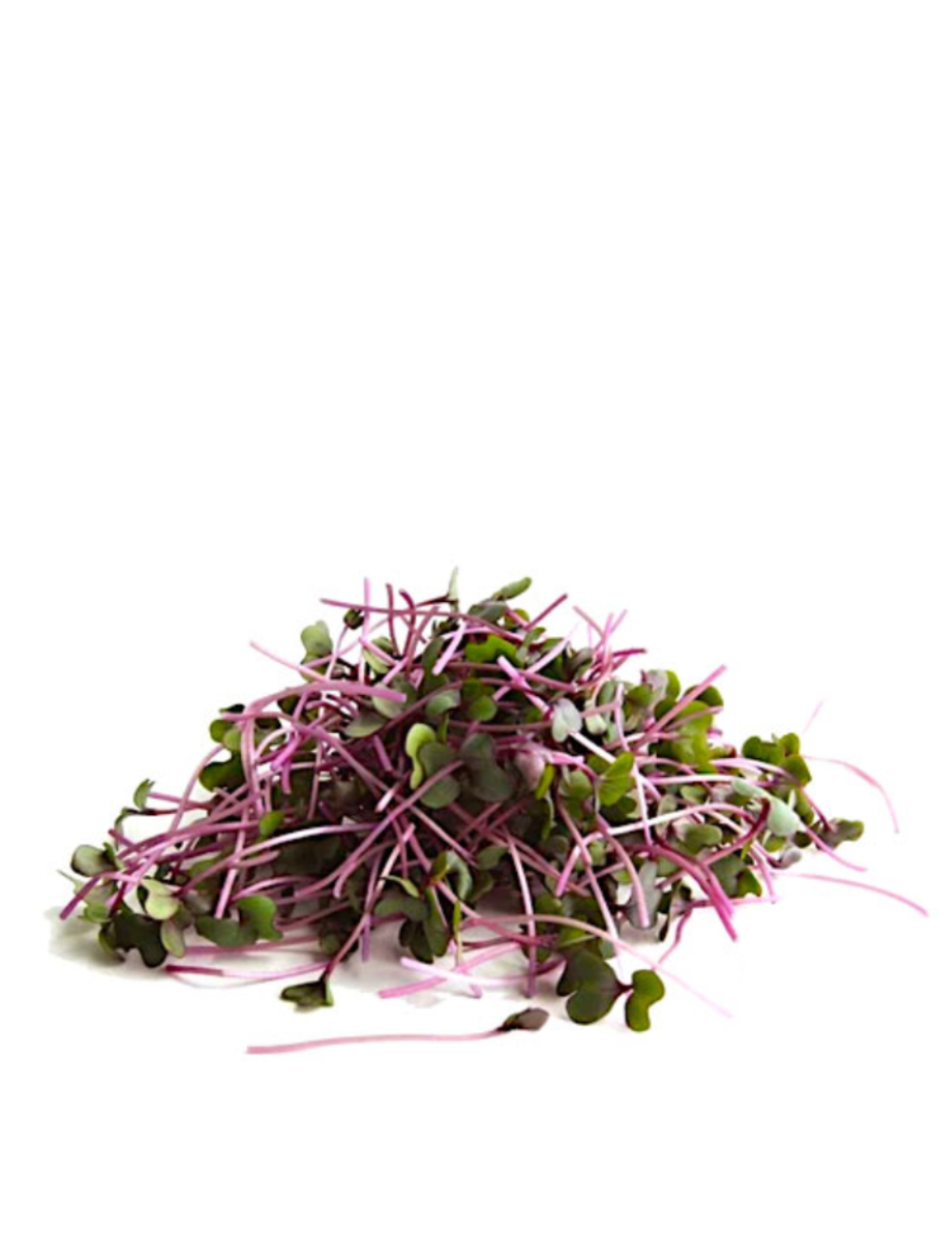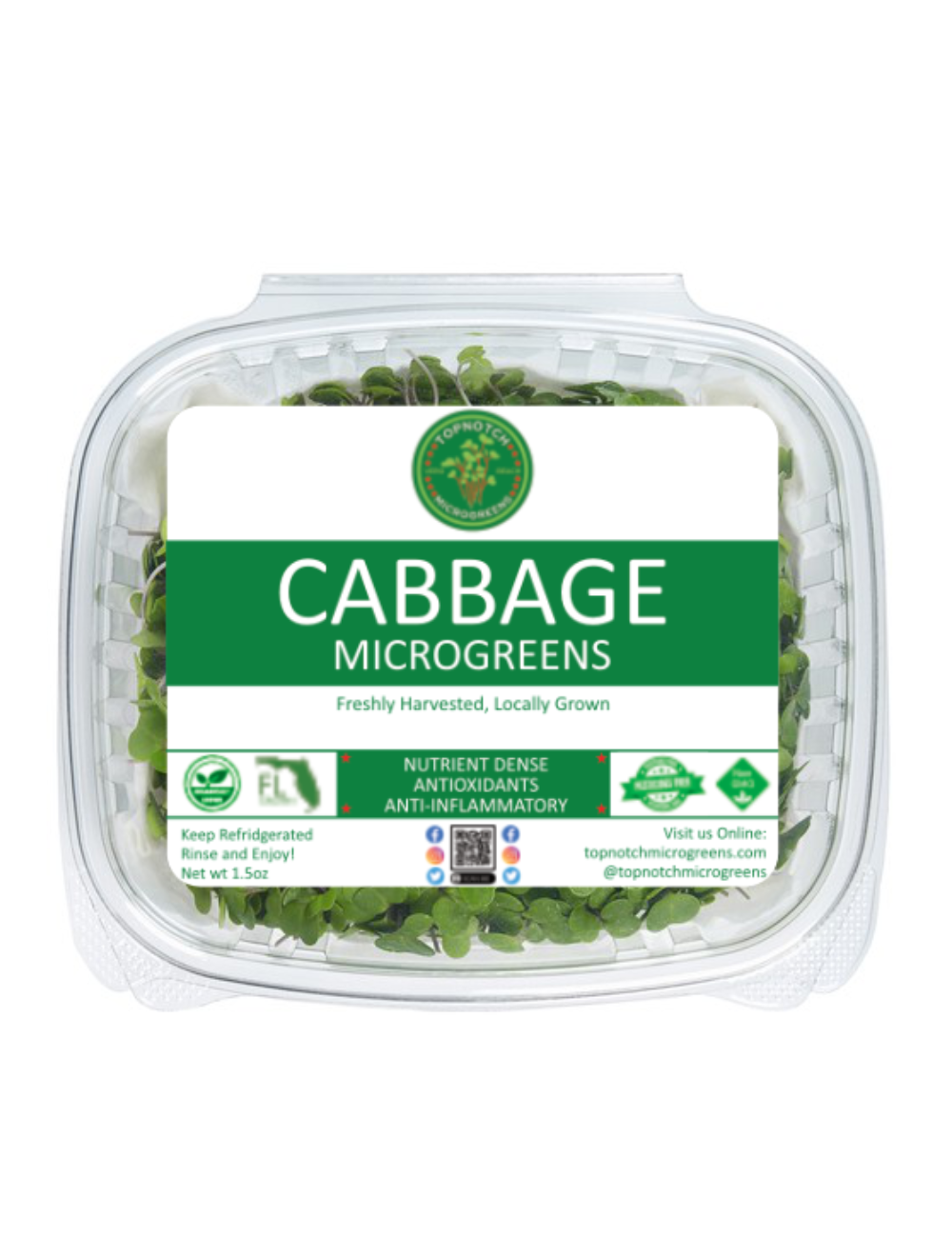Cabbage Microgreens, Red Acre, Non-GMO, 45g
Cabbage Microgreens, Red Acre, Non-GMO, 45g
Strong broccoli/cabbage flavor.
Nutrition
Nutrition
Vitamins C, A, and E, beta-carotenes, potassium and iron
Cabbage microgreen is packed with so many beneficial minerals, vitamins (C, K) minerals and other nutrients. It is rich in fiber, beta-carotene, calcium, magnesium, potassium, iodine, and sulfur.
By comparing to USDA National Nutrient Databases, microgreens showed a higher level (up to 69 times) of nutrients than its mature counterpart. For instance, the red cabbage microgreens have 40x more vitamin E, 6x more vitamin C and 69x more vitamin K than the mature red cabbage.
Vitamin E – An antioxidant to regulate cellular activity. It also helps in prevention of cancer, heart diseases, cataracts and Alzheimer’s disease.
Vitamin C – For the growth and repair of tissues. It plays a role in the immune, nervous system and brain’s memory/learning.
Vitamin K – Important for blood clotting and other body function.
Interestingly, by feeding rats to red cabbage microgreens, researchers found a significantly reduced in lipid and cholesterol level. This had suggested that red cabbage microgreens may help in managing weight loss and heart-related diseases.
Recipe Ideas
Recipe Ideas
Mild flavor that you can add to any dish. You keep the nutrition value, and you can sprinkle them over a salad, put them in a sandwich, or even to you roast dinner alongside the full-grown ones!
Cabbage Microgreens are versatile and go well with most dishes. As the flavor is mild, you can use them with almost any meal.
Add them in your salad, between two slices of freshly baked bread, sprinkle over your soap, or eat with your roast dinner!
They are an excellent choice as a base for any microgreens salad or just added to salads. Because of their crisp texture, they’re also a tremendous raw topping for sandwiches or burgers.
Couldn't load pickup availability



Vitamin C
Highly concentrated Vitamin C in red cabbage microgreens helps to boost the immune system and protect you from common illnesses like cold and flu. People with high Vitamin C levels are also less at risk of developing eye disease and cardiovascular disease.

Powerful anti-carcinogens
Red cabbage and other dark foods like blueberry, cocoa, and pomegranate are rich sources of anthocyanins.
Anthocyanins do more than just give food color. They can inhibit the formation and growth of cancer tumors, limit oxidative stress in the body, and fight carcinogens that are ingested, inhaled, or absorbed by other means.


